Live football action resumed on Saturday as the Bundesliga became the first football league in the world to play after pause due to the COVID-19 pandemic.
The games sounded more like Sunday kickabouts or high-intensity training sessions than the return to action of highly-paid professionals in the world's best attended football league with normally an average of about 42,000 spectators per game.
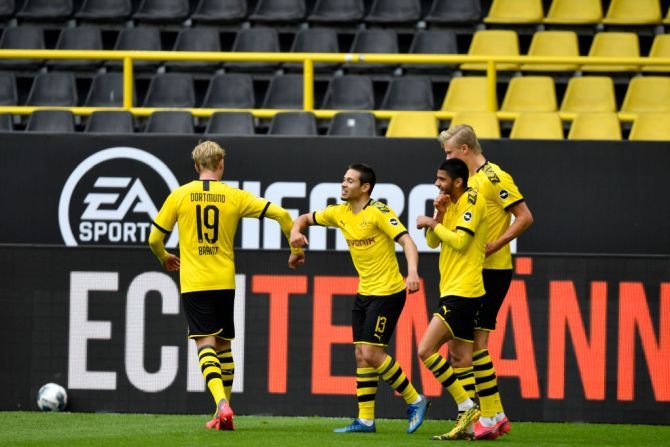
From social distancing substitutes using airport stairs, to disinfected balls and a potential television audience of one billion, the Bundesliga enjoyed a chequered restart as the first major sports league to resume amid the COVID-19 pandemic.
German soccer's top two divisions, suspended since mid-March due to the coronavirus, returned on Saturday with a schedule that included the Bundesliga's showcase -- the Ruhr valley derby between Borussia Dortmund and Schalke 04 -- as football-starved fans around the world tuned in to watch live action.
Despite a possible global television audience of one billion as predicted by Bayern Munich boss Karl-Heinz Rummenigge, and the hope it gave other sports leagues, it was not what fans had been hoping for and games suffered a scrappy start as players, lacking match practice, tried to adapt to the new conditions.
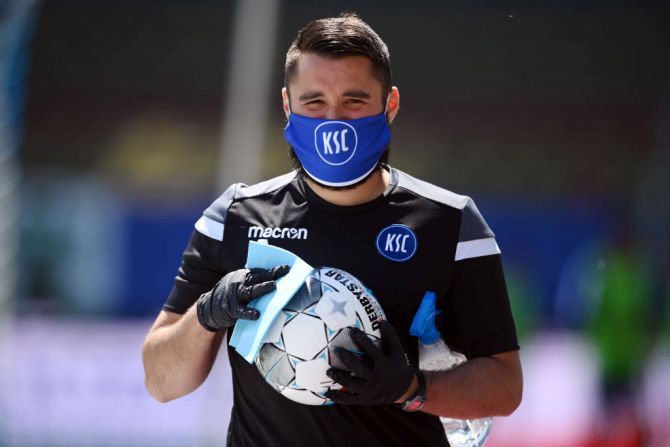
With a poll for German state broadcaster ARD showing 56% of Germans consider restarting at this stage to be wrong, the league knows any violation of the agreed rules could lead to another suspension that may be financially fatal for some clubs.
Instead of an 81,000 crowd packing into Dortmund's Signal Iduna Park, it was a mere 300 people, including the players, staff, team officials, broadcasters and security personnel, as in every stadium, as part of a strict health protocol.
Every shout, scream and thud of the ball bounced off the concrete stands and was picked up by the pitchside microphones to create a haunting atmosphere.
In Dortmund, Europe's biggest standing tribune, the Yellow Wall, was impressively empty as the latest episode of the fiercest German football rivalry unfolded on the pitch with hosts Borussia crushing Schalke 4-0.
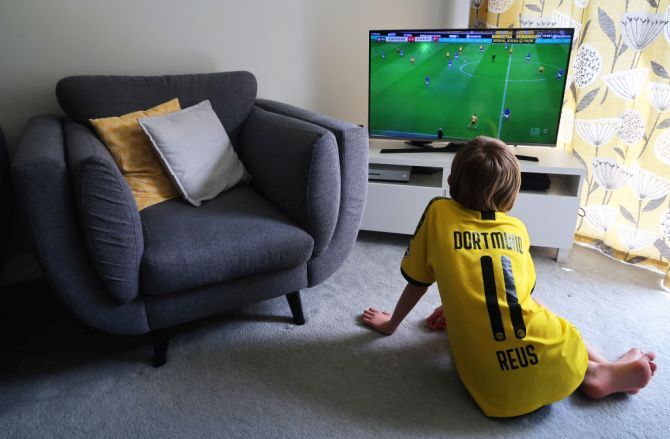
The games sounded more like Sunday kickabouts or high-intensity training sessions than the return to action of highly-paid professionals in the world's best attended football league with normally has an average of 42,000 spectators per game.
"Obviously, it's sad the fans cannot watch the game, that we can't meet up and go to the game and play this game together," Freiburg coach Christian Streich told a virtual news conference after their 1-1 draw at title hopefuls RB Leipzig.
"This is not something that can go on indefinitely. But under these conditions I did not expect a drop in quality because of a lack of fans and we did not see that."
With the Bundesliga desperate to complete the season for contractual reasons by June 30, it has been keen to get games played despite the unusual circumstances.
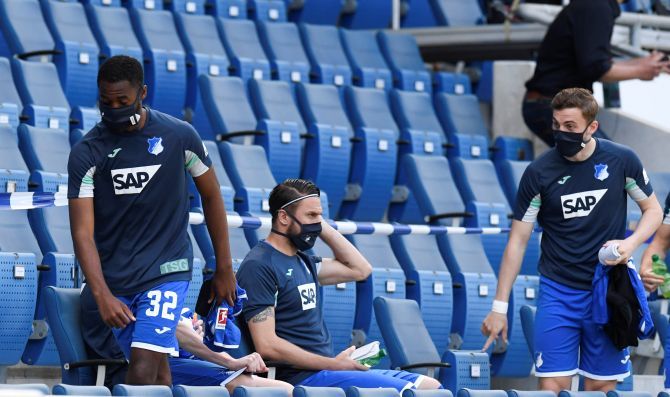
Police were present at the grounds prior to the start in order to deter fans from gathering outside to celebrate.
"The derby without fans is a new challenge for us but equally (as) complex as a regular game," Dortmund police said before the game, urging fans not to come to the ground. "Make it easy for us and stay at home."
They did stay away from the derby, officials said as the game got under way.
Inside the stadiums masks were mandatory for everyone apart from the players.
Teams had to change their routines completely, with Leipzig having brought in a set of airport stairs to keep substitutes at a distance in the stands some three metres higher than up than the bench.
The Bundesliga has allowed five substitutions in total per game to help players cope due to the lack of match practice and the congested fixture schedule, with Schalke becoming the first team in Bundesliga history to make use of the temporary measure.

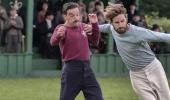
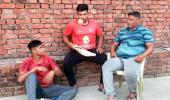







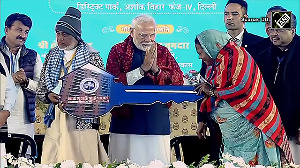
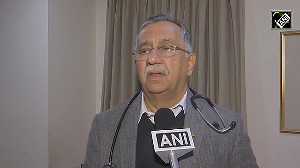

 © 2025 Rediff.com -
© 2025 Rediff.com -